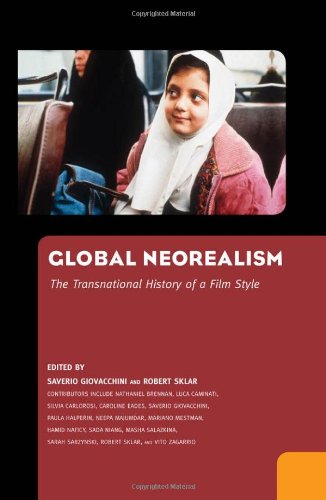

Most ebook files are in PDF format, so you can easily read them using various software such as Foxit Reader or directly on the Google Chrome browser.
Some ebook files are released by publishers in other formats such as .awz, .mobi, .epub, .fb2, etc. You may need to install specific software to read these formats on mobile/PC, such as Calibre.
Please read the tutorial at this link: https://ebookbell.com/faq
We offer FREE conversion to the popular formats you request; however, this may take some time. Therefore, right after payment, please email us, and we will try to provide the service as quickly as possible.
For some exceptional file formats or broken links (if any), please refrain from opening any disputes. Instead, email us first, and we will try to assist within a maximum of 6 hours.
EbookBell Team

4.0
76 reviewsNeorealism, the traditional story goes, was an Italian film style born in the second postwar period and aimed at recovering the reality of Italy after the sugarcoated moving images of Fascism.
Lasting from 1945 to the early 1950s, neorealism produced world-renowned masterpieces such as Roberto Rossellini's Roma, Citta Aperta (Rome, Open City, 1945) and Vittorio De Sica's Ladri di biciclette (Bicycle Thieves, 1947). These films won some of the most prestigious film awards of the immediate postwar period and influenced world cinema.
This collection brings together distinguished film scholars and cultural historians to complicate this nation-based approach to the history of neorealism. The traditional story notwithstanding, the meaning and the origins of the term are problematic.
What does neorealism really mean, and how Italian is it? Italian filmmakers were wary of using the term and Rossellini preferred "realism." Many filmmakers confessed to having greatly borrowed from other cinemas, including French, Soviet, and American.
Divided into three sections, Global Neorealism examines the history of this film style from the 1930s to the 1970s using a global and international perspective.
The first section examines the origins of neorealism in the international debate about realist aesthetics in the 1930s.
The second section discusses how this debate about realism was "Italianized" and coalesced into Italian "neorealism" and explores how critics and film distributors participated in coining the term.
Finally, the third section looks at neorealism's success outside of Italy and examines how film cultures in Latin America, Asia, and the United States adjusted the style to their national and regional situations.